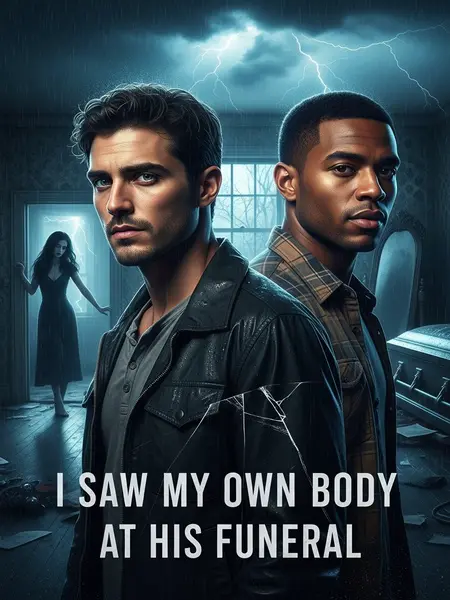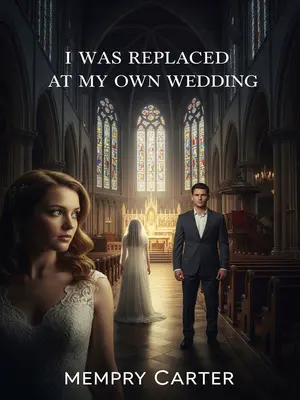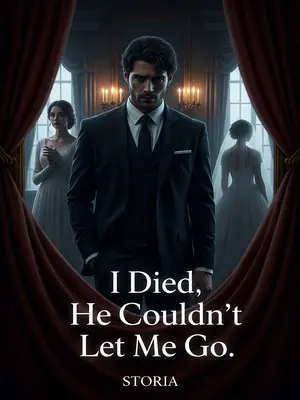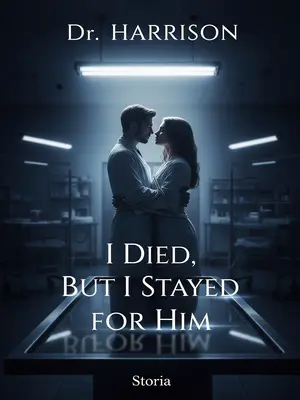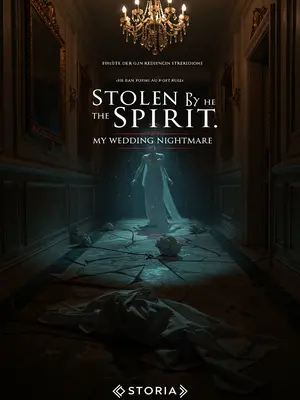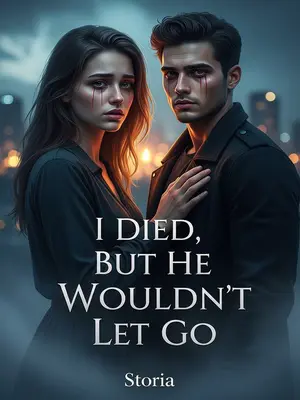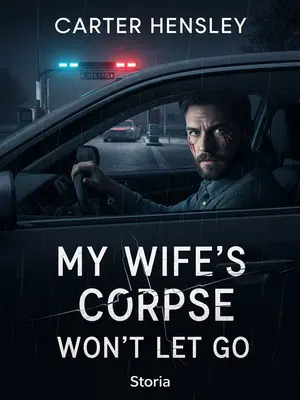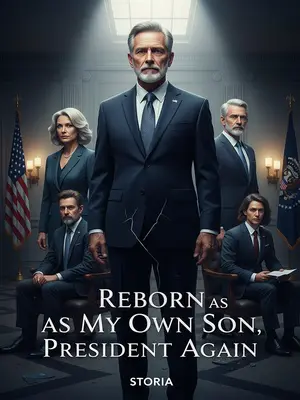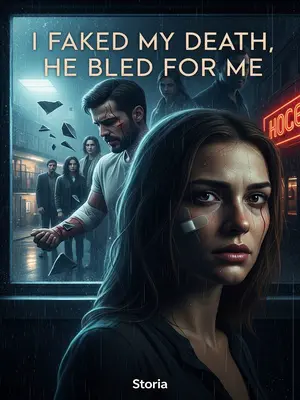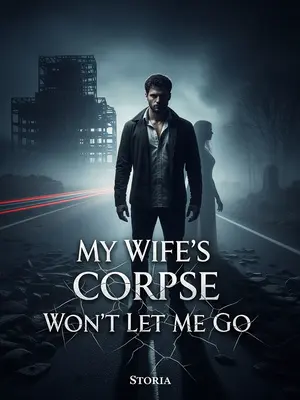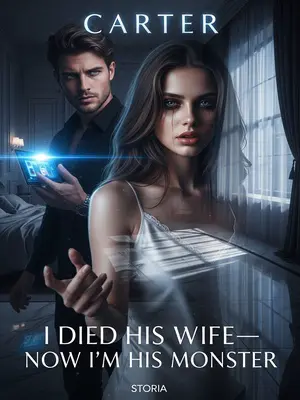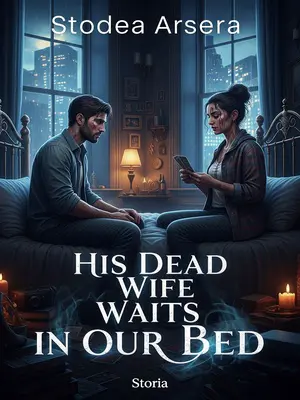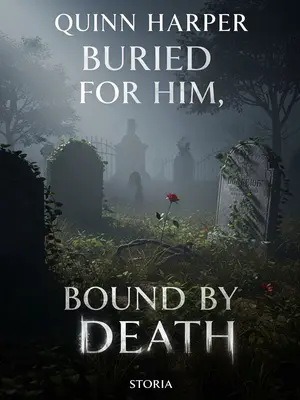Chapter 4: Travis’s Nightmares Begin
He lowered his head and began to explain: “It all started a month ago…”
His voice was low, barely more than a whisper. The words came slow at first, then faster, tumbling out like he’d been holding them back for too long. I leaned in, listening close.
One evening, after finishing chores, he heard someone call him on his way home: “Hey, Trav.”
The voice was familiar, warm. He turned, expecting to see his dad waving from the porch. For a second, everything felt normal.
He thought it was his dad coming to get him because he was late.
The sun was setting, the sky painted orange and purple. He hurried, heart light, thinking of dinner waiting at home. He could almost smell it.
But when he turned around, the dirt road was empty.
Not a soul in sight. The air felt thick, charged with something he couldn’t name. He shivered, suddenly cold.
Thinking he’d misheard, he got home, but the sound of crying hit him as soon as he walked in.
The house was dark, shadows pooling in every corner. The crying was sharp, cutting through the silence like broken glass. His heart dropped.
He rushed inside to find his father lying dead on the bed.
His dad looked peaceful, almost asleep. But there was no breath, no warmth left in his body. The room felt colder than the grave.
He froze, then collapsed to the floor, sobbing.
The grief hit him in waves, knocking the air from his lungs. He screamed for help, but no one came. He was alone.
Travis’s dad had been a coal miner. After retiring, he couldn’t sit still, so he raised a couple of sheep to pass the time.
The sheep were his pride, his way of staying busy. He’d talk to them like old friends, whistling as he worked. They were part of the family.
But on the seventh night after the funeral, there was a commotion in the yard—the sheep kept bleating.
Their cries were frantic, desperate. Travis sat up in bed, heart pounding, dread creeping in. He listened, hoping it would stop.
Half-asleep, he got up, threw on his jacket, and grabbed a flashlight to check.
The house was cold, the floorboards creaking under his feet. He slipped on his boots, the flashlight beam shaking in his hand. The night pressed in on him.
The night wind carried a metallic, bloody smell that snapped him awake.
It was sharp, unmistakable. His stomach turned, dread pooling in his gut. He moved faster.
Both sheep were on the ground, barely alive, their heads drooping, blood pooling beneath them.
He knelt beside them, hands shaking. Their eyes were wide, glassy, already fading. He whispered to them, but it was too late.
He turned pale with fear, paused, then ran for help.
He bolted out the gate, yelling for anyone who’d listen. His voice echoed through the night, desperate and raw. The darkness swallowed his cries.
The neighbors brought a couple of the braver guys to check it out.
They showed up with flashlights and baseball bats, faces grim. No one wanted to be there, but no one wanted to leave him alone, either. Everyone was on edge.
At first, they thought it was coyotes from the woods, but when they saw the blood and the sheep, everyone was stunned.
The scene was too clean, too strange. The councilman’s face went pale, his hands trembling as he lit a cigarette. No one spoke for a long time.
In the end, an older neighbor quietly told him to leave some flowers at his dad’s grave and ask for answers in a dream.
He nodded, not sure what else to do. The next morning, he gathered wildflowers and laid them on the grave, whispering a prayer he barely remembered from childhood. He hoped it would help.
But after just a couple days of peace, something happened to his wife.
It was like the calm before a storm. He’d almost convinced himself things were getting better. Hope is a dangerous thing.
Half-asleep, he felt someone pushing him. His wife was lying on her side, back to him.
The bed creaked, the sheets cold. He reached out, expecting to find her hand. The room felt too quiet.
He figured he’d neglected her with all the funeral and sheep trouble lately, so he turned and hugged her, wanting to get closer.
He whispered an apology, pulling her close, hoping to make up for lost time. He needed comfort as much as she did.
“Trav, did you feed the sheep?”
Her voice was muffled, strange. He froze, confusion flickering in his mind. The words didn’t make sense.
He froze, thinking she’d forgotten the sheep were dead.
He tried to laugh it off, but the words stuck in his throat. A chill crept up his spine.
“What’s wrong with you? Didn’t the sheep die a few days ago?”
He spoke softly, not wanting to upset her. His hand trembled on her shoulder. Something felt wrong.
He didn’t dare say the word “die,” afraid to scare her more.
He swallowed, choosing his words carefully. The silence between them stretched, heavy and cold. His skin prickled.
She didn’t seem to hear, just repeated, “Trav, did you feed the sheep?”
Her voice was low and rough, almost like a man’s. It sounded wrong, not like her at all.
It sent a chill down his spine, the kind you can’t shake off.
Suppressing the terror crawling up his spine, he pulled his hand back.
His heart pounded, sweat prickling at his temples. He rolled away, careful not to make a sound. He held his breath.
The person beside him didn’t move. Moonlight spilled through the window, making her look like a lifeless statue.
Her face was pale, eyes open but empty. The light caught on her hair, making it glow silver. He wanted to run.
He didn’t dare stay, so he got out of bed, dressed, and pretended to go feed the sheep.
He tiptoed out, grabbing his boots, heart racing. The house was silent, every shadow a threat. He barely breathed.
Once outside, something drew him to the window. Through the blurry glass, he looked inside.
His breath fogged the glass. He wiped it away, squinting into the darkness. He wasn’t sure what he’d find.
His wife turned her head and grinned at him. Bright red, wriggling things poured from her mouth.
Her smile was wide, unnatural. The things spilling from her lips writhed and twisted, glistening in the moonlight. He stumbled back, bile rising in his throat. His vision swam.
He was so scared he collapsed. His flashlight rolled away, blinked twice, and went out.
He lay in the dirt, paralyzed by fear. The world seemed to shrink, the darkness pressing in. He wanted to scream, but nothing came out.
He didn’t dare go back in until dawn. But in the morning, his wife came in from outside, called him to eat, and acted as usual.
She smiled, made coffee, chatted about the weather. No sign of the horrors from the night before. It was like nothing happened.
The sheets and bedding were clean, no sign of anything strange.
He checked every corner, every closet. Nothing. It was like the night had never happened. He doubted his own sanity.
Was it all just his imagination?
He wanted to believe it, but the fear lingered, sharp and real. He couldn’t shake it.
But the fear still lingered in his bones.
He jumped at every noise, every shadow. Sleep came hard, nightmares harder. He felt like he was losing his mind.
“And then?”
I leaned forward, voice gentle. I could see he was close to breaking. My heart pounded.
“After that, every night she went wild—tried to bite anyone she saw—but in the daytime she was fine. I figured it was in her head, so I took her to the hospital, but they couldn’t find anything.”
He ran a hand through his hair, frustration and fear mixing in his eyes. The doctors shrugged, said it was stress. But he knew better. He looked at me, desperate for answers.
“Isn’t there a Miss Lucille in the next town? I remember she was good with spirits and house clearings. Why didn’t you ask her for help?” I asked.
I remembered Miss Lucille from my childhood—her reputation was legendary in three counties. If anyone could fix this, it would’ve been her. She was a legend around here. Everybody knew her.
